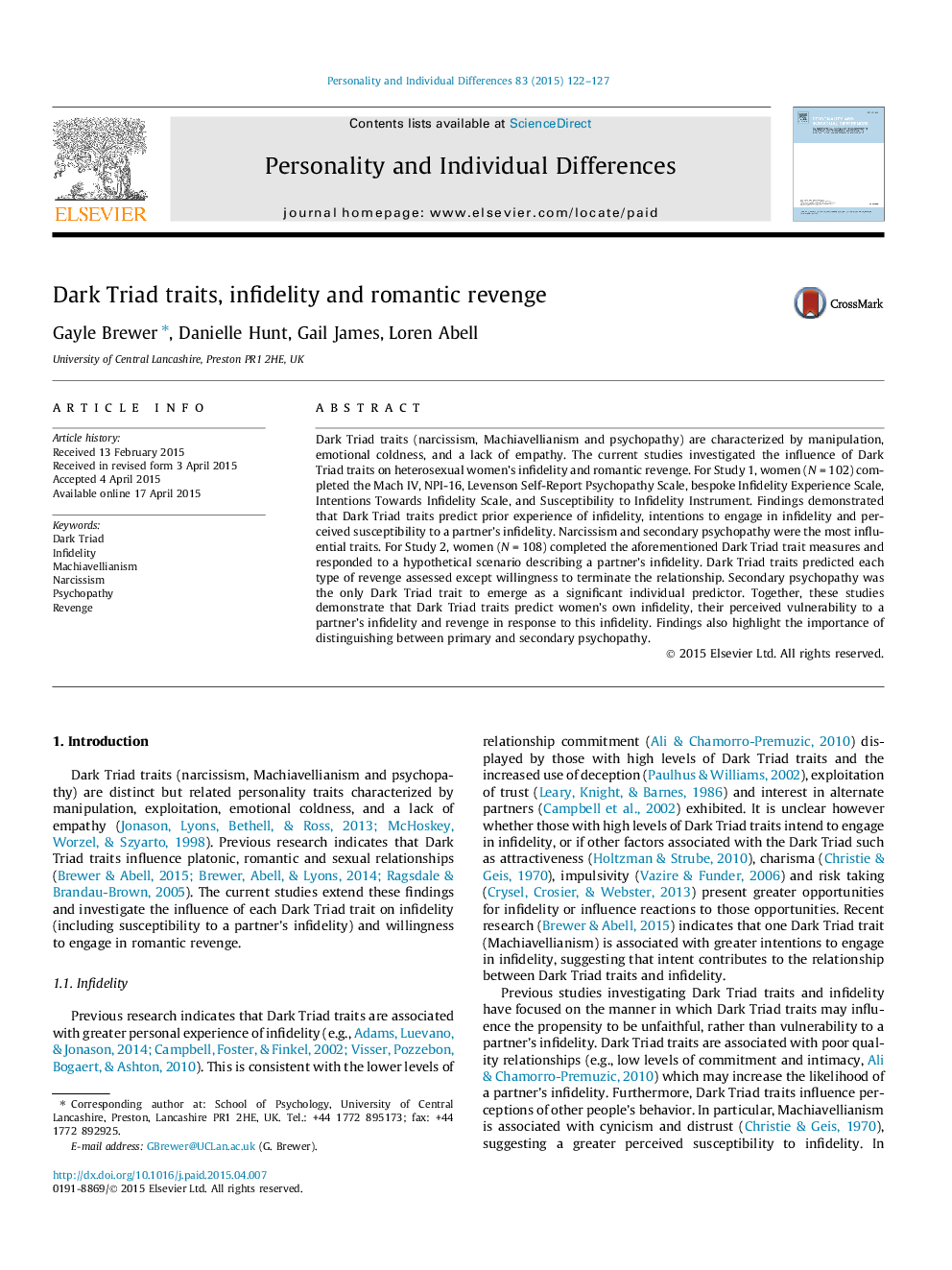| Article ID | Journal | Published Year | Pages | File Type |
|---|---|---|---|---|
| 890142 | Personality and Individual Differences | 2015 | 6 Pages |
•Dark Triad traits are associated with greater infidelity.•Dark Triad traits predict perceived susceptibility to a partner’s infidelity.•Narcissism and secondary psychopathy exert the greatest influence on infidelity.•Dark Triad traits predict greater willingness to engage in romantic revenge.
Dark Triad traits (narcissism, Machiavellianism and psychopathy) are characterized by manipulation, emotional coldness, and a lack of empathy. The current studies investigated the influence of Dark Triad traits on heterosexual women’s infidelity and romantic revenge. For Study 1, women (N = 102) completed the Mach IV, NPI-16, Levenson Self-Report Psychopathy Scale, bespoke Infidelity Experience Scale, Intentions Towards Infidelity Scale, and Susceptibility to Infidelity Instrument. Findings demonstrated that Dark Triad traits predict prior experience of infidelity, intentions to engage in infidelity and perceived susceptibility to a partner’s infidelity. Narcissism and secondary psychopathy were the most influential traits. For Study 2, women (N = 108) completed the aforementioned Dark Triad trait measures and responded to a hypothetical scenario describing a partner’s infidelity. Dark Triad traits predicted each type of revenge assessed except willingness to terminate the relationship. Secondary psychopathy was the only Dark Triad trait to emerge as a significant individual predictor. Together, these studies demonstrate that Dark Triad traits predict women’s own infidelity, their perceived vulnerability to a partner’s infidelity and revenge in response to this infidelity. Findings also highlight the importance of distinguishing between primary and secondary psychopathy.
